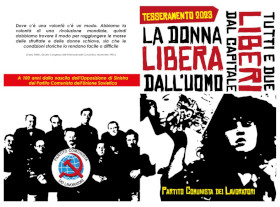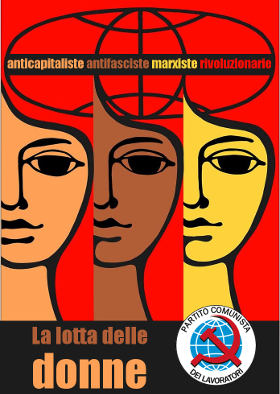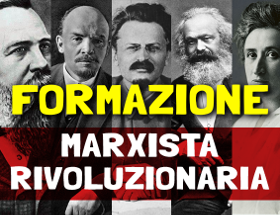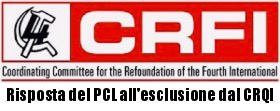Internazionale
Zohran Mamdani wins NYC Democratic primary
Good news about voters, no solution for the city
28 Giugno 2025
On June 24, social democrat Zohran Mamdani won the Democratic Party primary election for Mayor of New York City — informally, since the primary used ranked-choice voting, and the final results wouldn’t be published until July 1.
Mamdani took 43.5% of the first-choice votes; Andrew Cuomo, his establishment opponent, took 36.4%; and Brad Lander took 11.3%. Since Mamdani and Lander cross-endorsed each other, Lander’s second-choice votes would presumably go to Mamdani and give him a majority. Rather than prolong the humiliation, Cuomo conceded.
Mamdani ran on a platform of municipal reforms, including freezing rents on 1 million rent-regulated apartments, no fares for buses, free (or subsidized) childcare, city-owned grocery stories in “food deserts,” and increasing the NYC minimum wage to $30 per hour. His election showed broad support for such measures.
Mamdani is 33 years old, a Muslim of Indian descent from an affluent family. He has a history of student and community activism, including solidarity with Palestine. He’s a member of Democratic Socialists of America (DSA). He didn’t feature his activism or DSA membership in his campaign, but he didn’t renounce them.
Mamdani’s campaign used social media skillfully and deployed thousands of young volunteers. Mamdani did well with white, Latino, Asian, and young voters, and not so well with Black, Jewish, and older voters.
Mamdani has a good chance to win the November mayoral election, but his victory isn’t sure. The New York Times and the Washington Post are the premier liberal news media of the US ruling class. The Post is owned by Jeff Bezos, who also owns Amazon and was the world’s richest man until Elon Musk displaced him. Bezos may regain his title, as Musk’s political antics drag down Tesla, and his Starship rockets keep blowing up. Here’s the Post’s liberal capitalist take on Mamdani’s election, quoted at length because it’s so revealing:
«Zohran Mamdani’s victory is bad for New York and the Democratic Party
[...] Now, a man who believes that capitalism is “theft” is in line to lead the country’s biggest city and the world’s financial capital. His signature ideas are “city-owned grocery stories,” no bus fares, freezing rent on 1 million regulated apartments and increasing the minimum wage to $30. No doubt these might strike some voters as tempting ideas. But, as with so many proposals from America’s far left, the trade-offs would hurt the people they are supposed to help.
A massive minimum wage would depress low-skilled employment. His rent freeze would reduce the housing supply and decrease its quality. Cutting bus fares would leave a transit funding hole that, unless somehow filled, would erode service. Meanwhile, the grocery business operates on thin margins, and his plan for city-run stores would likely lead to fewer options, poor service and shortages, as privately-run stores closed rather than try to compete with city-subsidized shops.
Mamdani previously called for defunding and dismantling the police and, even though he has toned that down, he still opposes hiring more officers.
The candidate does acknowledge at least one trade-off: even higher taxes in a city where they are already hefty. He wants to impose a 2 percent annual wealth tax on the richest 1 percent of New Yorkers and increase the state’s corporate tax rate from 7.25 percent to 11.5 percent. The Big Apple already suffers from capital flight. Hedge funds and others with means have relocated to more business-friendly climates, such as Florida. Mamdani’s tax plans would spur a corporate exodus and drive more rich people out of town, undermining the tax base and making existing services harder to maintain».
Wealthy donors and the corporate media will lean on the Democratic Party to sabotage Mamdani’s campaign by withholding endorsement and funding. Cumo and current Mayor Eric Adams, both of whom have filed to run as independents in November, may make a deal in which one withdraws in favor of the other.
If Mamdani wins, he will face major obstacles. He proposes financing his reforms with a wealth tax and an increase in the corporate income tax. But the mayor has no control over either, and New York Governor Kathy Hochul has ruled out any tax increase. Without funding, his reforms would be defeated by market forces, and he wouldn’t last long in office.
If masses of the workers and the oppressed were mobilizing, Mamdani might overcome the capitalists’ resistance. But we’re not yet in that world.
In the absence of mass mobilization, Mamdani is more likely to become another Brandon Johnson, the current mayor of Chicago. Johnson’s movement credentials are even better than Mamdani’s, since he was a teacher in the Chicago Public Schools for many years and an activist in the Chicago Teachers Union (CTU). Accepting the limits of his office, Johnson failed to carry out his progressive reforms, disappointed his base, and will be hard-pressed to win a second term in 2027.
Mamdani’s win has excited movement activists who want to believe in the possibility of winning reforms through elections and reclaiming the Democratic Party as a people’s party. They had almost given up after the disappointments of the administrations of Barack Obama and Joe Biden, the failed candidacies of Hillary Clinton and Kamala Harris, the climbdown of Bernie Sanders, and integration of Alexandria Ocasio-Cortez, and the Squad into the congressional order.
The headline of a June 25 article by Liza Featherstone on the Jacobin website captures the shift: At a Bleak Political Moment, Zohran Mamdani Offers Hope.
Mamdani’s win confirms what we see in the big rallies against Donald Trump. Large numbers of workers and youth want to resist. Revolutionary Marxists honor that impulse. At the same time, we need to patiently explain that the Democrats are a party of neoliberalism and war. Their politicians are forced to choose between going along with what they know is wrong, or being turfed out of office.
Revolutionary Marxists should not run as Democrats or support Democrats. As a result, the candidates we support are unlikely to win elections above the city council level. But for us, at the present level of class struggle, elections are about getting out ideas, not winning office.
As workers and the oppressed mobilize, the situation will change. Workers in motion will demand political representation, a mass working-class party. Elections will still be mainly about ideas, but getting workers and revolutionaries elected to office will allow more projection of those ideas.
The decisive fights will emerge from workplace, community, and military organizing, with demonstrations, strikes, picket lines, occupations, and organized self-defense. To win, workers will need a mass revolutionary party, not just an electoral party. A conversation we need to begin.










